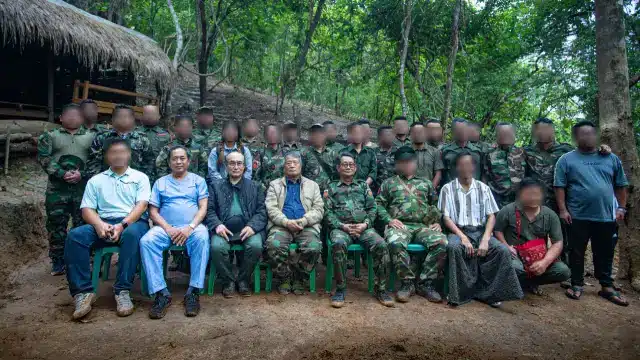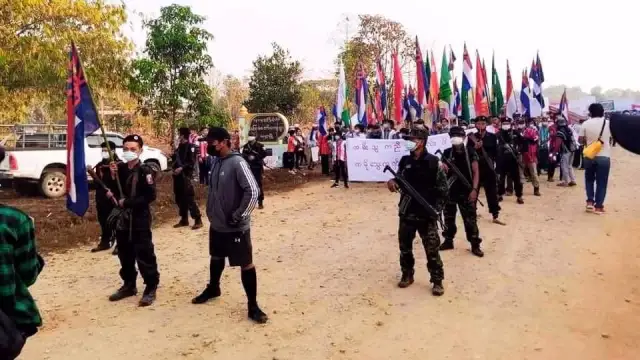Myanmar’s National Unity Government held its 19th cabinet meeting on July 29th, bringing together leaders of the country’s democratic resistance movement. The government’s press service revealed the details on Thursday, July 31st.
According to the available information regarding the virtual meeting, Myanmar’s National Unity Government’s Acting President Duwal Shila and Union Prime Minister Mahn Win Khaing Than addressed ministers at the 10am session, focusing on administrative reforms and regional strategy.
The meeting highlighted the parallel government’s efforts to establish legitimacy while challenging military rule. Ministers discussed practical governance issues, including joint office processes and energy ministry budgets, demonstrating attempts to function as a government-in-exile.
Mr Duwal Shila emphasised the revolutionary commitment required to overthrow Myanmar’s military council. “Only by any means, whether political or military, can we remove the military council and create a just and prosperous new Union of Myanmar that we hope for,” he declared. “This is the will of all of us, the will of all the people,” he added.
The acting president called for continued reforms while maintaining revolutionary dedication. “When we do that, we will continue to stand with great faith in our hearts that we are all true revolutionaries who have sacrificed themselves and are building the future of the people of the country,” he stated.
He praised ministerial performance while emphasising the need for improvement, noting that “nothing is permanent” and progress requires constant advancement.
Mr Mahn Win Khaing Than addressed the practical challenges of governing a country under military occupation. He referenced ministerial visits to Sagaing and Magway regions, stating: “Some ministers have already travelled to Sagaing and Magway, so I believe that they will be better informed about the actual situation and will be able to manage the situation more effectively and efficiently for the revolution.”
The prime minister stressed the need for a comprehensive national strategy rather than regional approaches. “We must focus more on areas that can be controlled by the military, and we cannot ignore areas such as Bago, Tanintharyi, and Ayeyarwady that cannot be ignored,” he explained. “Although we talk about the North and South separately due to the revolutionary situation, our National Unity Government is the government of the whole country,” he further added.
Mr Mahn Win Khaing Than outlined the government’s federal democratic objectives. “When we set principles, we must set them according to the conditions of the whole country. We cannot have one for the North and one for the South,” he emphasised. He acknowledged the need for regional flexibility while maintaining unified principles across Myanmar’s diverse territories.
The meeting addressed practical governance matters through ministerial presentations. Union Minister for Home Affairs and Immigration U Lwin Ko Lat discussed joint office processes and operational expenses. Union Minister for Electricity and Energy U Soe Thura Tun presented his shadow ministry’s operating budgets for review and discussion.
The prime minister connected these administrative functions to broader democratic goals. “The implementation of the administrative sector is our goal, which is to establish a federal democratic system. It is also a foundation for implementation, so we need to start well,” he concluded.
The union chief minister reviewed the presentations before Mr Duwal Shila delivered closing remarks and adjourned the session.
At a time when the military rulers have intensified their attacks on the Opposition forces, the shadow government’s virtual meeting, despite appearing as an ornamental act, reflected Myanmar’s National Unity Government’s efforts to maintain democratic structures while operating under severe constraints.
However, except for rhetoric, the shadow government failed to show any clear way out of the current fiasco.
The cabinet session demonstrates the parallel government’s attempts to establish administrative capacity across Myanmar’s regions, which are now under the control of the rebels. The shadow ministers claim that they travel to territories where they can operate safely while planning for broader national governance once military rule ends.
Myanmar’s National Unity Government was formed following the February 2021 military coup that overthrew Myanmar’s elected civilian government. It represents opposition parties, ethnic minorities, and civil society groups united against military rule.
Join our channels on Telegram and WhatsApp to receive geopolitical updates, videos and more.


